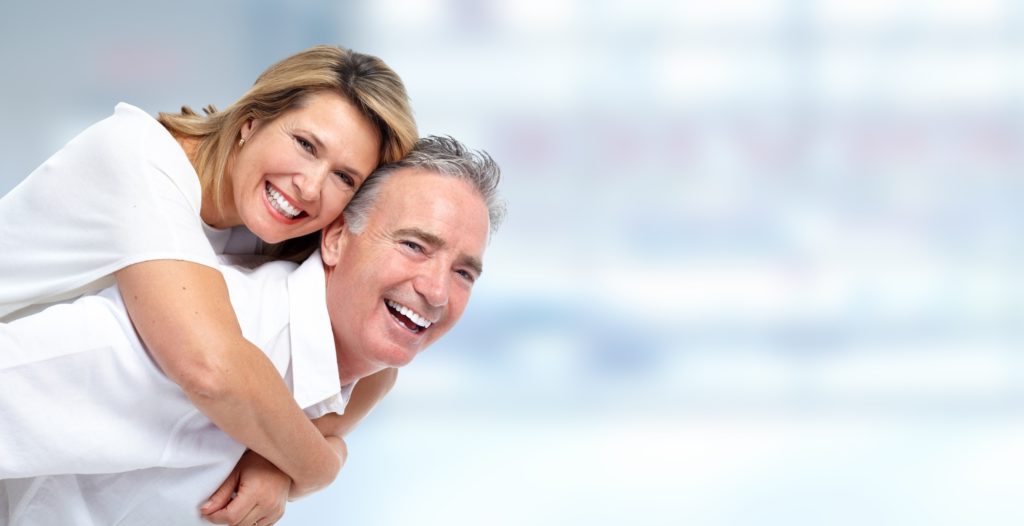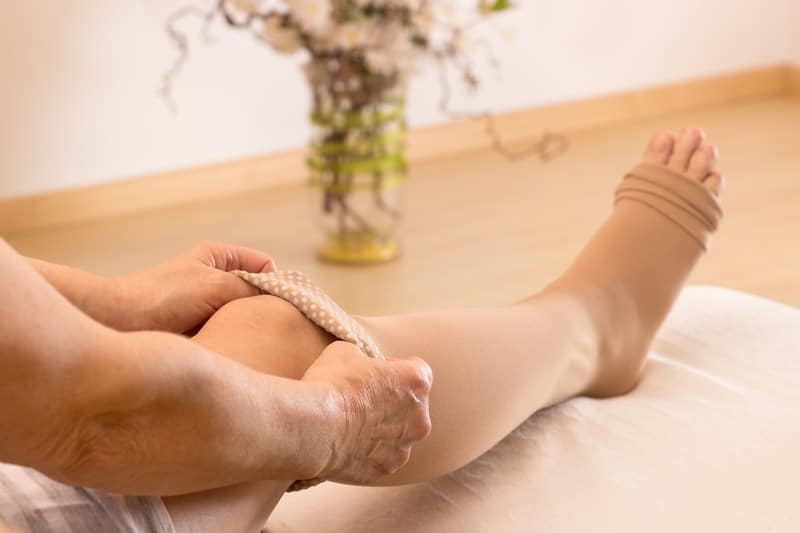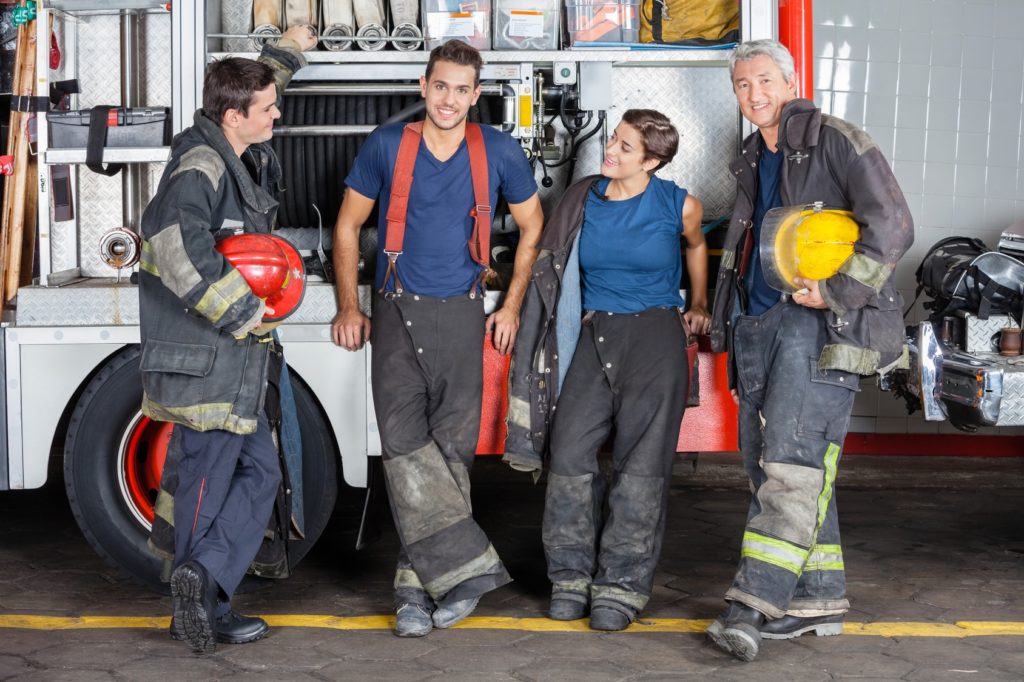
Home Remedies for Varicose Veins
Can You Cure Varicose Veins?
There are several conservative therapy and management of vein insufficiency options to help with the symptoms associated with varicose veins. None of these methods will prevent or fix the underlying problem. There is no cure for varicose veins or venous insufficiency, once a vein is abnormal (fails to return blood to the heart in a timely fashion) it will always be abnormal. Fortunately, a vein specialist can do a full vein exam and painless duplex ultrasound to find out which veins are insufficient and to recommend treatment options to alleviate health risks and varicose vein pain.
Varicose Veins Home Treatment
• Compression stockings will help minimize symptoms particularly for those who spend a lot of time standing. All patients diagnosed with vein insufficiency are required to wear at least 20-30mmHg compression stockings for a minimum of 90 days prior to insurances approving any type of intervention. Compression stockings are strongly recommended for patients with venous disease who travel, either on a flight or drive over 3 hours. This helps to minimize the risk of developing deep vein thrombosis (DVT), or a blood clot as a result of the underlying vein disease and lack of mobility.
• We know that when blood stops moving, it clots, so if you are sitting for a long time in one place, your risk of the blood pooling (venous reflux) and ceasing to flow increases significantly. This brings us to the second important conservative vein therapy – movement. Within your own parameters, be as active as possible, all day long. Take breaks from your desk job, go for a brief walk, or do leg exercises at your desk. This improves circulation, thereby minimizing the symptoms associated with vein problems. Elevating your legs whenever possible will help to decrease swelling in legs, leg fatigue, itching legs, etc.
• Finally, as with all other chronic health conditions, a sensible diet helps in a myriad of ways. Most importantly, stay well hydrated. Heat will affect varicose veins, especially in the summer in Arizona. Consuming at least 64 ounces of water a day, better yet a gallon of water a day, prevents dehydration and improves blood flow. In patients who are dehydrated, blood flow becomes sluggish, and we know slow blood flow increases the risk of clots.
Oftentimes, these simple and conservative vein therapies will be helpful. For people with continuing and more aggressive symptoms, a visit to a vein specialist for a full exam and duplex ultrasound is the best solution for finding relief from varicose vein pain and vein treatments to reduce overall health risk!
Varicose Veins worse in Summer Heat? If it seems like your varicose veins symptoms seem to worsen in the summer heat—especially for those of you who live in hot climates like Arizona—you are not imagining it. Talk to a qualified vein specialist and they will tell you that heat does have an effect on your…
Read MoreLet’s face it—a big part of the reason that you are in Arizona is because you don’t enjoy golfing in the snow or hiking in the rain. And now that you are here, there is no reason to let anything get in the way of your active life—not even the discomfort of varicose veins. Although…
Read MoreYounger adults in the U.S. are searching for options to deal with varicose veins…REALLY? Health and Google statistics are starting to show that younger and younger people are seeking treatment for conditions such as varicose veins, chronic venous insufficiency (CVI), and other health conditions usually associated with older adults. Health officials are attributing this…
Read MoreHas a woman ever said she loves wearing high heels because they are just so comfortable? Uh uh. Or because it is just so easy to walk in them? Not likely. High heels are popular because of the way they make the legs of the wearer appear.
Read MoreIf you just googled “compression stockings for varicose veins” to find this article, you are far from alone. Millions of Americans have looked at compression stockings as a non-surgical alternative to help deal with the discomfort of varicose veins and other peripheral vascular concerns. Perhaps not knowing that there are newer, effective, and minimally invasive procedures…
Read MoreIt can hurt to care–just ask any nurse. As a profession, nurses experience some of the highest rates of varicose veins and Chronic Venous Insufficiency (CVI) in the country. In fact, in one study by the NIH, 63 per cent of participating nurses were shown to have at least one sign of CVI. Nurses will know…
Read MoreOne might think that the biggest cause of injury among American firefighters would be burns and collapsing structures. However, more than just skin and bones, it is the firefighter’s vascular system that is at risk. There are a number of reasons why firefighters are especially susceptible to vascular injury, and why they in particular need…
Read MorePerhaps the most important thing to know about Radiofrequency Vein Ablation, is that it has a high success rate in treatment of varicose veins. Additionally, it is minimally invasive, minimally painful, has low rates of complication, can be performed in-office, and has a very rapid recovery time, usually about a day. The Venous Ablation Process…
Read MoreThe concern about having or developing Chronic Venous Insufficiency (CVI) is a great reason to have your varicose veins fully assessed by a qualified Vein Specialist. Why should I be concerned about the symptoms of Chronic Veins Insufficiency? Chronic Venous Insufficiency, also known as Venous Reflux Disease or Venous Stasis, refers to a condition of inadequate…
Read MoreCan Varicose Vein Pain be Eliminated? It is the end of a long day, and suddenly you realize that the varicose veins that you barely considered this morning are working hard to get your attention. They ache, and your legs feel heavy and are getting swollen. Especially if you have been ignoring them all day,…
Read More

